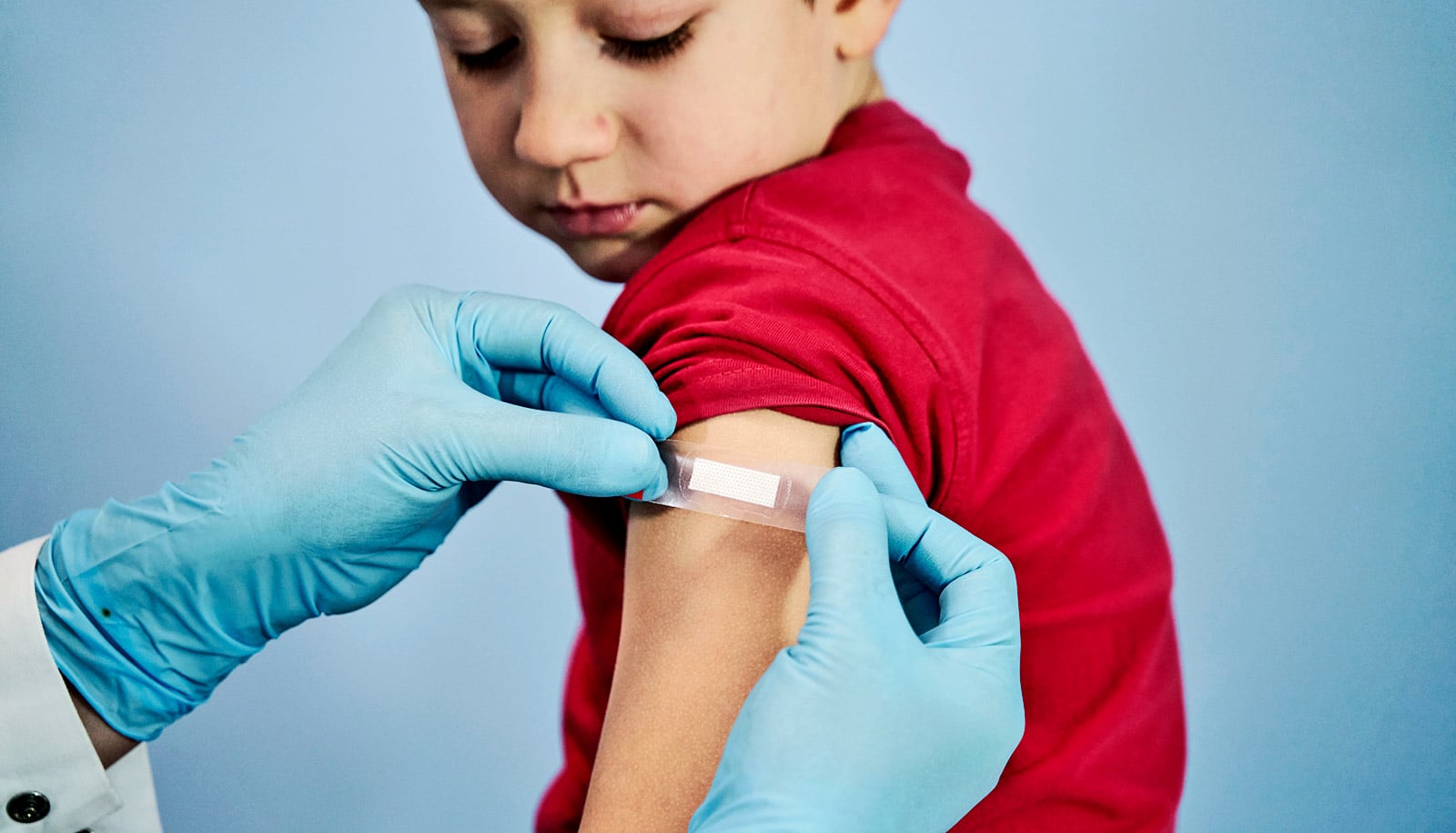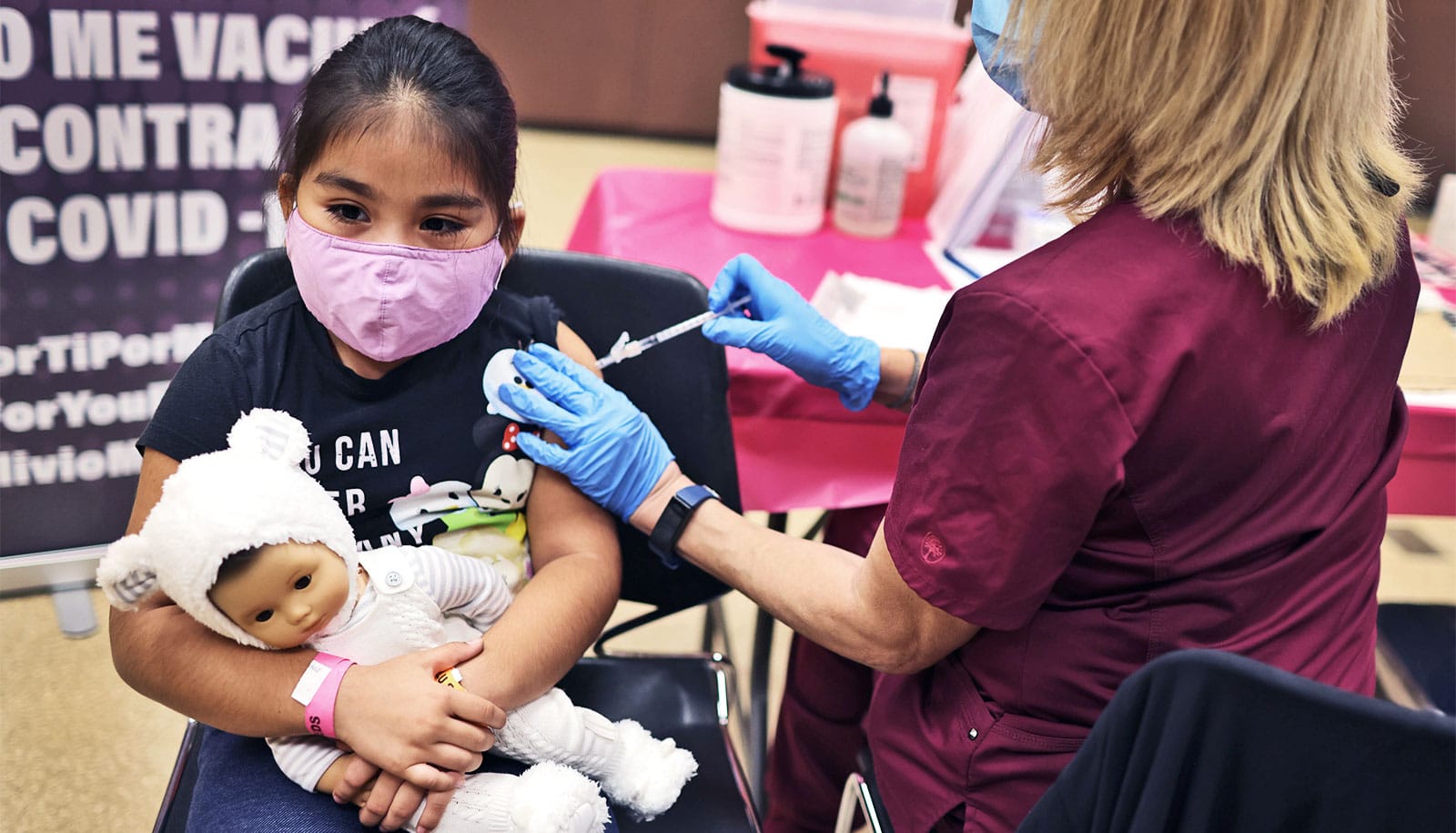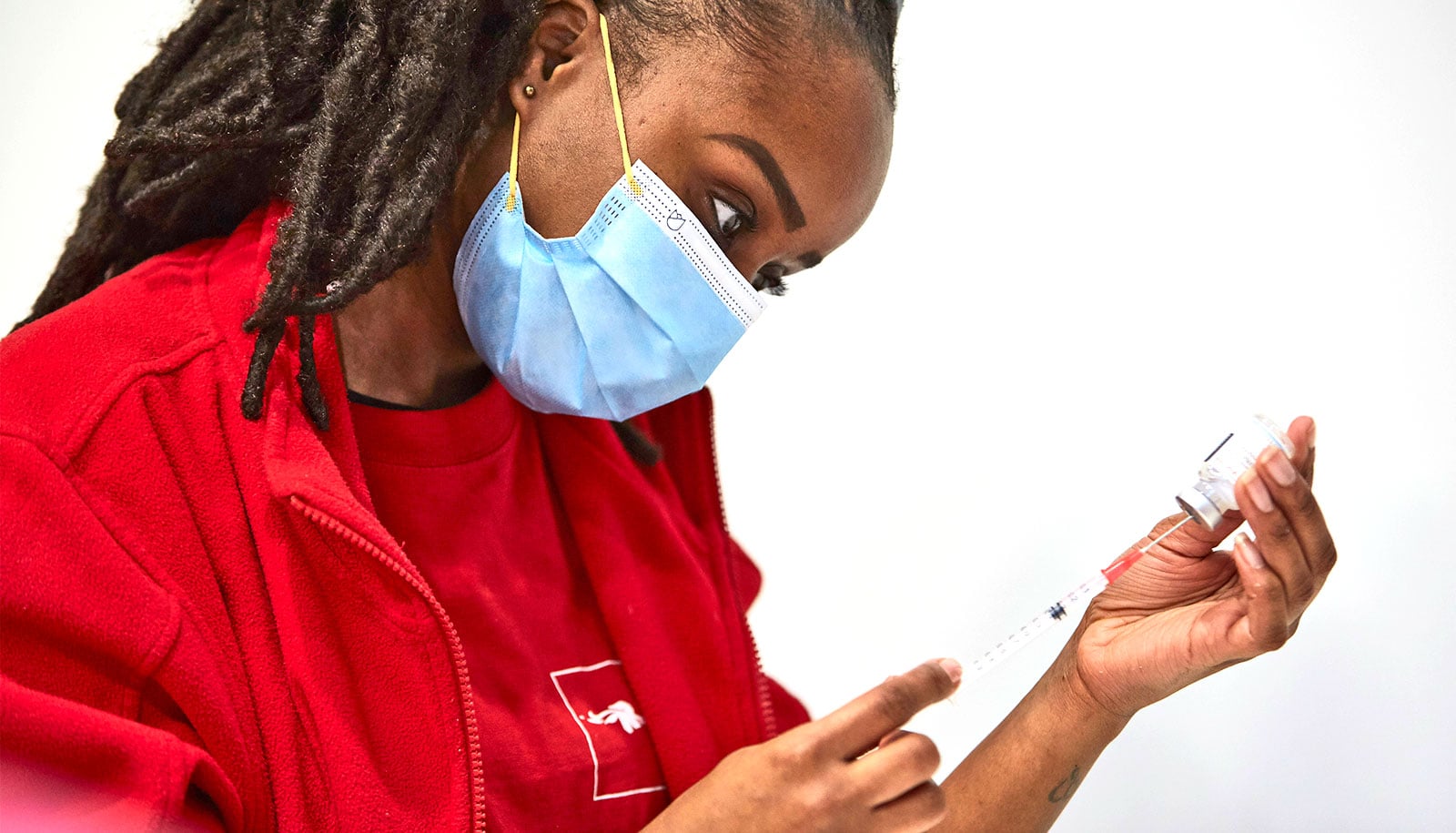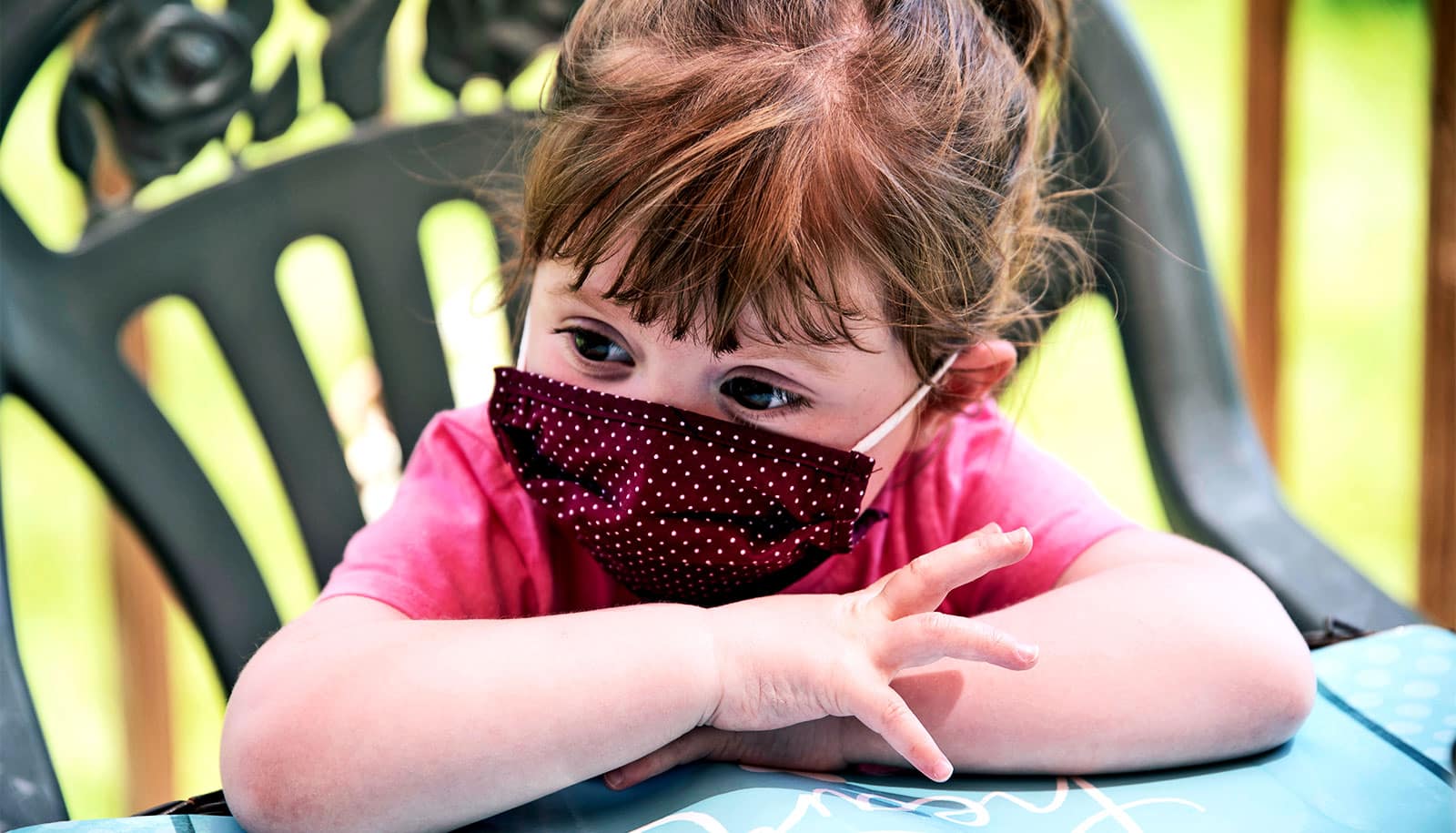Children aged 6 months to 5 years are now eligible to receive the Pfizer and BioNTech SE and Moderna COVID-19 vaccine.
The Centers for Disease Control and Prevention (CDC) unanimously authorized its use, after extensive review of safety and efficacy data from vaccine studies completed across the country.
Here, Jennifer Nayak, an infectious disease expert at the University of Rochester Medical Center, explains the importance of vaccination for the youngest children, how parents can get their children vaccinated, and more:
Why do younger children need to be vaccinated?
We are still seeing younger children admitted to the hospital with COVID-19 infection. There have been more than 2,000,000 COVID-19 cases in the United States in children four years and younger, with record numbers of children hospitalized in the Omicron wave, including here in Rochester.
Additionally, children are still hospitalized with multisystem inflammatory syndrome (MIS-C), which is an illness that occurs post-COVID infection. Vaccination against COVID-19 helps prevent MIS-C. There are 19 million children in the 0-4 age group and the best protection is to be vaccinated and to follow the latest prevention guidelines from the CDC. It’s important to protect children, and prevention strategies and vaccinations are our best methods.
Among pediatric patients, COVID-19 hospitalization rates in this youngest age cohort are now higher than in 5–11-year-olds or 12–17-year-olds (for which a vaccine is available). Vaccination will help prevent the most severe COVID-19 related outcomes and keep kids in the 0-5 age group in pre-school and other early childhood settings.
Are the vaccines safe and effective for my children?
Yes. Safety is a top priority for any clinical trials for children.
Researchers followed more than 4,500 children enrolled in the Pfizer vaccine trials, two-thirds of whom received the vaccine. The vaccines were very well tolerated in the studies, and children experienced similar effects that teens and adults do: local side effects included mild to moderate pain in the arm, with redness and swelling reported less frequently.
Systemic side effects included irritability, drowsiness, decreased appetite, and fever. Most symptoms started 1-2 hours after vaccination and resolved within 1-2 days of onset. There were no cases of myocarditis or pericarditis through three months of follow-up.
For the Pfizer vaccine, after three doses of 3 micrograms, a similar antibody response was generated as to what is seen in young adults. These COVID-19 vaccines were also shown to help prevent infection. While some children will still have break-through infections, because the shot does not provide complete protection, they will have milder symptoms.
What are the long-term effects of the vaccines?
Long-term effects are continuously being studied for COVID vaccines, but to date these vaccines have been shown to be safe. In general, any vaccine side effects from prior vaccines occurred within the first few weeks after vaccination. This is why the safety studies collected data for a few months, well beyond the time period that a reaction has ever been seen for existing vaccines.
How were COVID vaccines evaluated and tested in this age group?
The studies were completed in two parts. Initially researchers focused on dosage, starting with very low doses and gradually increasing them to find the appropriate amount for this age group.
In the trials, two-thirds of the kids received the vaccine and others were given a placebo (saline.)
In all, more than 4,500 children were enrolled for the Pfizer trials, and 10,000 were enrolled for the Moderna trials, including more than 200 children in URMC research studies.
Scientists/researchers are continuously updating and reviewing data to monitor the efficacy and safety of vaccination. This is a good thing because it means scientists are always looking to improve how things are done.
Is the dosage different for younger children in this age group?
Quite different, actually. The dose for the Pfizer vaccine in this age group is 10-fold lower than the adult does, and about 1/3 of the dose for 5-11-year-olds (1/4 adult dose for Moderna, ½ the dose for 6-11). This is based on age, not weight. This lower dose provides a similar immune response in kids to that seen in adolescents and adults after the initial two vaccine does plus the booster.
Are variants spreading in children, teens, and young adults?
Yes, the variants are spreading, which is expected. Whenever there is infection, the virus replicates very rapidly and potentially creates variants. Some of those variants are more transmissible and disease severity may also vary. The best way to prevent variants is to prevent infection. The best way to prevent infection is through vaccination.
How can I get my children vaccinated?
While details are still being finalized, we expect pediatricians and family physicians will provide the vaccine for many children. Physicians want this process to be as comfortable as possible for young children and their families. If your doctor is not able to provide the shot, they should be able to point you in the right direction.
Can these vaccines give you COVID?
Getting a coronavirus vaccine will not give you COVID. None of the vaccines currently being developed, tested and distributed in the US use the live virus that causes COVID-19; they use other methods to stimulate our bodies to recognize and fight the virus.
Are mRNA vaccines gene therapy?
The Pfizer and Moderna COVID vaccines are composed of short-lived messenger RNA, which is not the same thing as DNA. The RNA will not enter the nucleus of the cell (the command center of the cell and location of the DNA) and cannot change a cell’s genetic material in any way. Therefore, the vaccine is NOT gene therapy. Upon providing the “message” to make the protein that will protect from infection, the RNA contained in the vaccine is broken down by the body.
In addition, vaccines are not medications, medications are taken daily and are continuously being processed by your body. They are designed to change how your body works. Vaccines provide the blueprint for your immune system to respond to a very specific situation.
Source: University of Rochester



